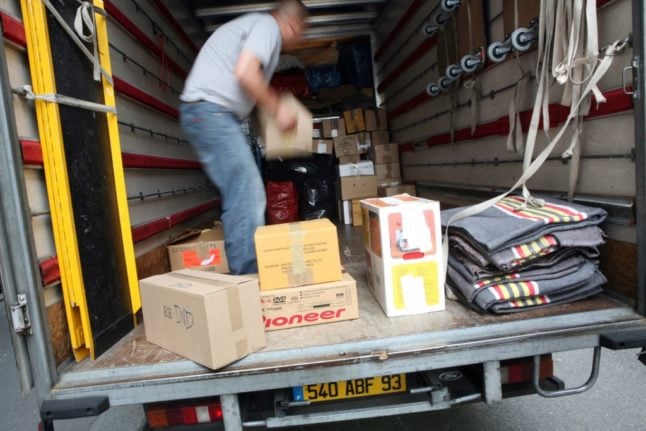Switzerland has 10 public universities — in Basel, Bern, Fribourg, Geneva, Neuchâtel, Lausanne, Lucerne, Lugano, St. Gallen, and Zurich — as well as two institutes of technology located in Lausanne and Zurich.
Besides their field of orientation, the difference between “regular” universities and the polytechnics is that the former are cantonal institutions while the latter two are federal — both in terms of administration and funding.
In addition, there is a number of specialised universities of applied sciences, as well as teacher training colleges.
A significant number of Swiss universities are highly ranked, with some, like Zurich’s polytechnic institute (ETH), positioned among the top schools worldwide and in the first place in continental Europe.
READ MORE: Why ETH Zurich has been ranked the ‘best university in continental Europe’
A recent study by the Federal Statistical Office (FSO) shows that “thanks to the reputation of its education system, Switzerland welcomes an ever-increasing number of international students to its universities every year”.
At the start of the 2020 academic year (the last data available), nearly 12,300 new international students enrolled in Swiss universities — 4 percent more than in the previous year — despite the Covid pandemic and travel restrictions.
Nearly half (49 percent) of foreigners are doctoral students, 19 percent are at master’s level, and the rest are studying for a bachelor’s degree, FSO data shows.
How can foreign students enrol at a Swiss university?
You can start by visiting the website of a university you are interested in attending to find out what their specific entry conditions are, including language proficiency requirements.
While most schools offer courses in English, some may only have French, German, or Italian-taught degrees — this is, after all, Switzerland.
You can apply to a university of your choice directly online, following instructions. As an example of what is involved in the application process, here is an enrolment form for University of Geneva, which may give you an idea of what’s required elsewhere in Switzerland.
Once you are accepted, the next step is to see whether you need a student visa to study in Switzerland.
If you come from a EU or EFTA country, you don’t need a visa to enter Switzerland, but you will have to register with your local authorities within 14 days of your arrival and apply for a residence permit.
You will have to prove that you are enrolled at a university in the canton by providing a letter of acceptance along with proof of payment of the registration and tuition fees.
If you are a citizen of a third nation, you have to apply at a Swiss embassy or consulate in your home country for a D-visa to enter and study in Switzerland.
Here too you will have to show proof of university enrolment, and must apply for a residence permit after arriving in Switzerland.
How much does it cost to study at a Swiss university?
Overall, the cost of studying in Switzerland is much lower than at top universities in the UK or the United States, but foreign students pay a significantly higher tuition than locals.
The reason is that Swiss universities are public, which means they are partly supported by tax revenue, so people who don’t reside in Switzerland have to shell out more money to study here.
As a general indication, in 2021, foreign Bachelor students at the University of St. Gallen had to pay a semester fee which is 2.5 times higher than that of Swiss residents — 3,129 francs compared to 1,229 francs.
In the Masters program, the ratio was 2.3 (3,329 francs against 1,429 francs).
At the University of Italian Switzerland in Lugano, the most expensive in the country, foreign students paid double, or 4,000 francs.
The finding is similar in the Swiss universities that train teachers.
The price for foreigners is highest in Valais (6,500 francs), versus 500 francs for their Swiss counterparts.
At the HEP in Fribourg, the second most expensive for foreigners, the tuition per semester is 4,200 francs, which is seven times more than Swiss students pay.
By contrast, tuition at Switzerland’s top university, ETH in Zurich, is only 799 per semester.
READ MORE: How much universities in Switzerland charge foreigners compared to locals
What other costs will foreign students have to pay?
Generally speaking, and given that Switzerland is an expensive country, expect costs to be high.
Apart from the tuition and additional fees for study-associated materials, you will have to pay rent for housing where you will live, as well as for meals, public transport, the obligatory health insurance policy, and whatever other miscellaneous costs you may incur.
In some situations, international students can get some financial assistance from the Federal Commission for Scholarships for Foreign Students (FCS).
The list of those eligible to apply is, however, limited to some postgraduate candidates and researchers from certain countries.
To check whether your nation is eligible for the programme, you can contact the Swiss Embassy or consulate in your home country.



 Please whitelist us to continue reading.
Please whitelist us to continue reading.
Member comments